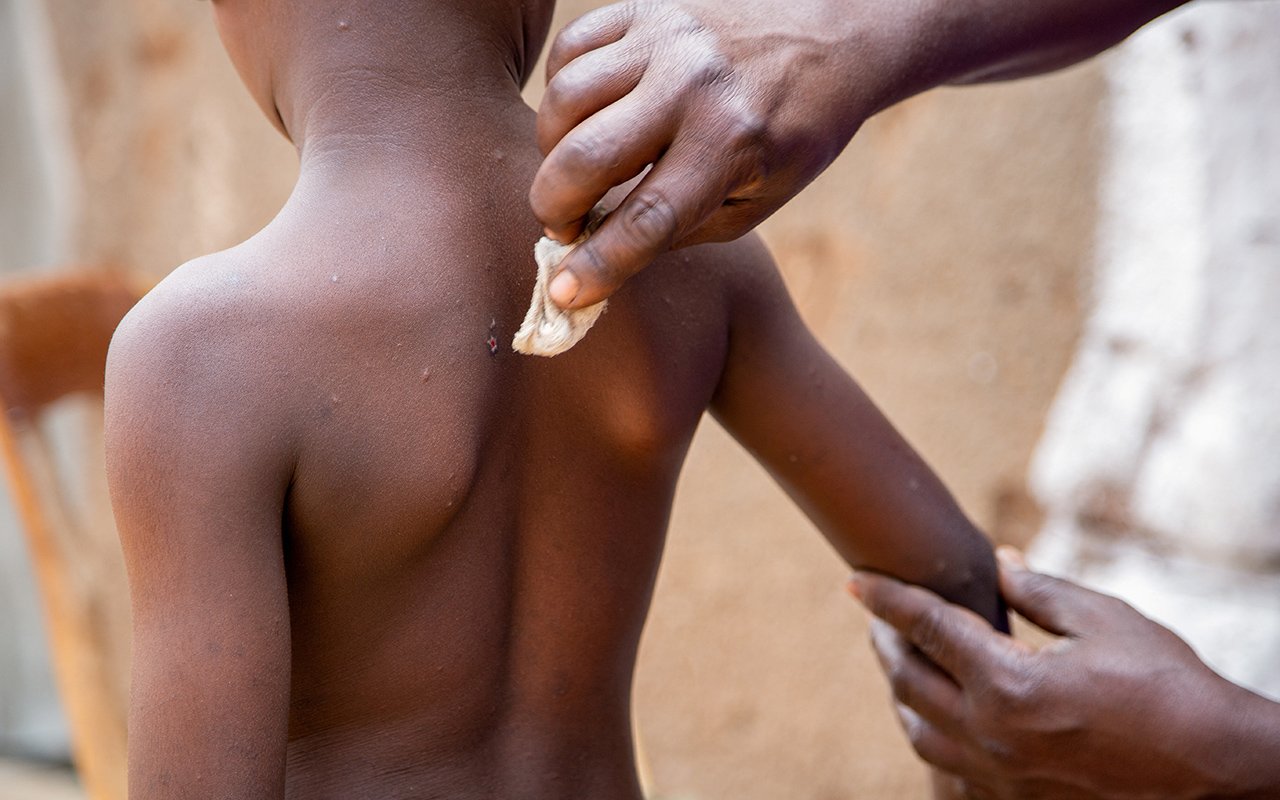
Ronald Opiecabo
On August 14, 2024, the World Health Organization (WHO) declared Mpox, formerly known as monkeypox, a global health emergency of international concern. First detected in humans in 1970, Mpox has caused regular outbreaks in the Democratic Republic of Congo (DRC) for more than a decade. Its first transcontinental outbreak occurred in 2022 in Europe and the USA. According to the WHO, there are currently 12 African countries with active transmissions.
The outbreak in Europe and the USA was caused by the clade II virus, primarily transmitted through sexual contact between men who have sex with men, with a case fatality rate between 0.1 percent and 3.6 percent (proportion of the cases that die within a specified period). The current outbreaks in Africa are caused by the newly emerged clade Ib virus, transmitted through sexual contact, normal contact, and the respiratory tract, disproportionately affecting children (accounting for 70 percent of cases and 85 percent of deaths) and women with high rates of miscarriages among pregnant women.
The case fatality rate due to the clade Ib outbreak ranges from 4 percent to 10 percent, compared to 1.4 percent from previous clade I outbreaks in DRC. This suggests that the Mpox virus is evolving rapidly to acquire efficient transmission and immune evasion mechanisms. The Mpox virus is 96.3 percent genetically similar to the smallpox virus, they follow similar infection pathways, and the modes of transmission of the Mpox clade Ib virus are consistent with the smallpox transmission.
Smallpox, one of the most lethal diseases in human history, remains the only human disease successfully eradicated through a sustained, large-scale vaccination campaign. It caused an estimated death toll of 300-500million globally. Three out of ten infected persons died. At the peak of the pandemic, the global population was less than 2 billion people, urban settings were less developed, and there was no commercial air transport.
Suppose Mpox continues to evolve and become a pandemic threat with potential similar to smallpox. In that case, the consequences will be more terrifying given today’s global population of over 8 billion people, dwelling largely in congested urban settings interconnected by air travel. We have two licensed vaccines against the Mpox virus. The live-modified vaccinia virus Ankara (MVA-BN) is manufactured by the Bavarian Nordic from Denmark, and the LC16KMB, a freeze-dried vaccine manufactured by KM Biologics. CO. LTD in Japan.
Bavarian Nordic will not sell its vaccines directly to any African country or manufacture them in Africa. African countries will only have access through third parties because Bavarian Nordic believes that no African country will ever be responsible for buying its vaccines. Besides, vaccine prices range between USD 100 - 141 per dose, making it a challenge for financially constrained countries relying on donations of anti-malarial or anti-retroviral drugs to spend over USD 200 for two vaccine doses.
On a positive note, the European Union has donated 100,000 vaccine doses to the DRC and a similar quantity by the USA to Nigeria, enough to vaccinate 50,000 people respectively as the other African countries remain in the queue for their turn of this goodwill. However, more investigational vaccine candidates should be studied to evaluate their safety and efficacy among the affected communities.
This is not only to provide potential alternatives but because MVA-BN licensed for use in adults was evaluated against clade II, not clade Ib. Besides, the most susceptible populations in the current outbreak differ from those enrolled in the studies in Europe and the USA. Furthermore, the safety and efficacy of MVA-BN are not well-established in children and pregnant women.
Dr. Ronald Opiecabo is a vaccinologist, Wits-Alive alumnus







